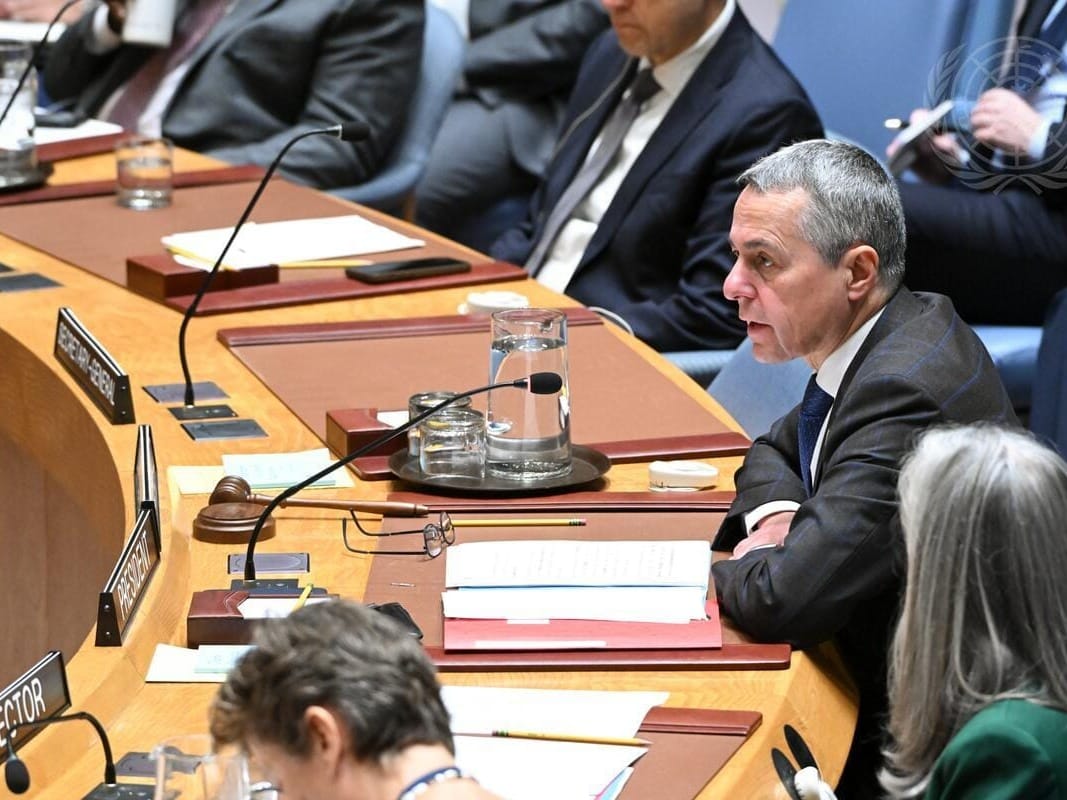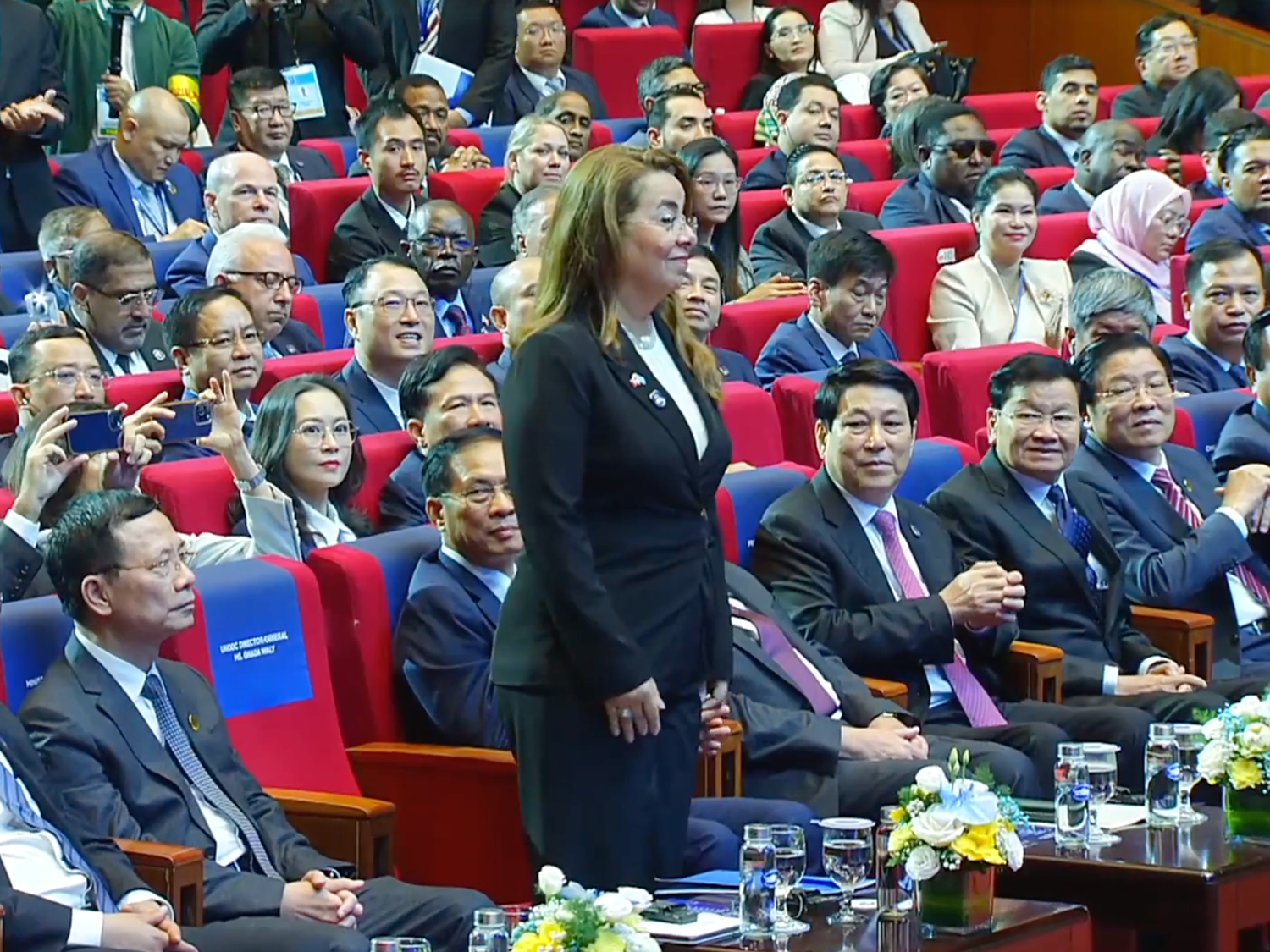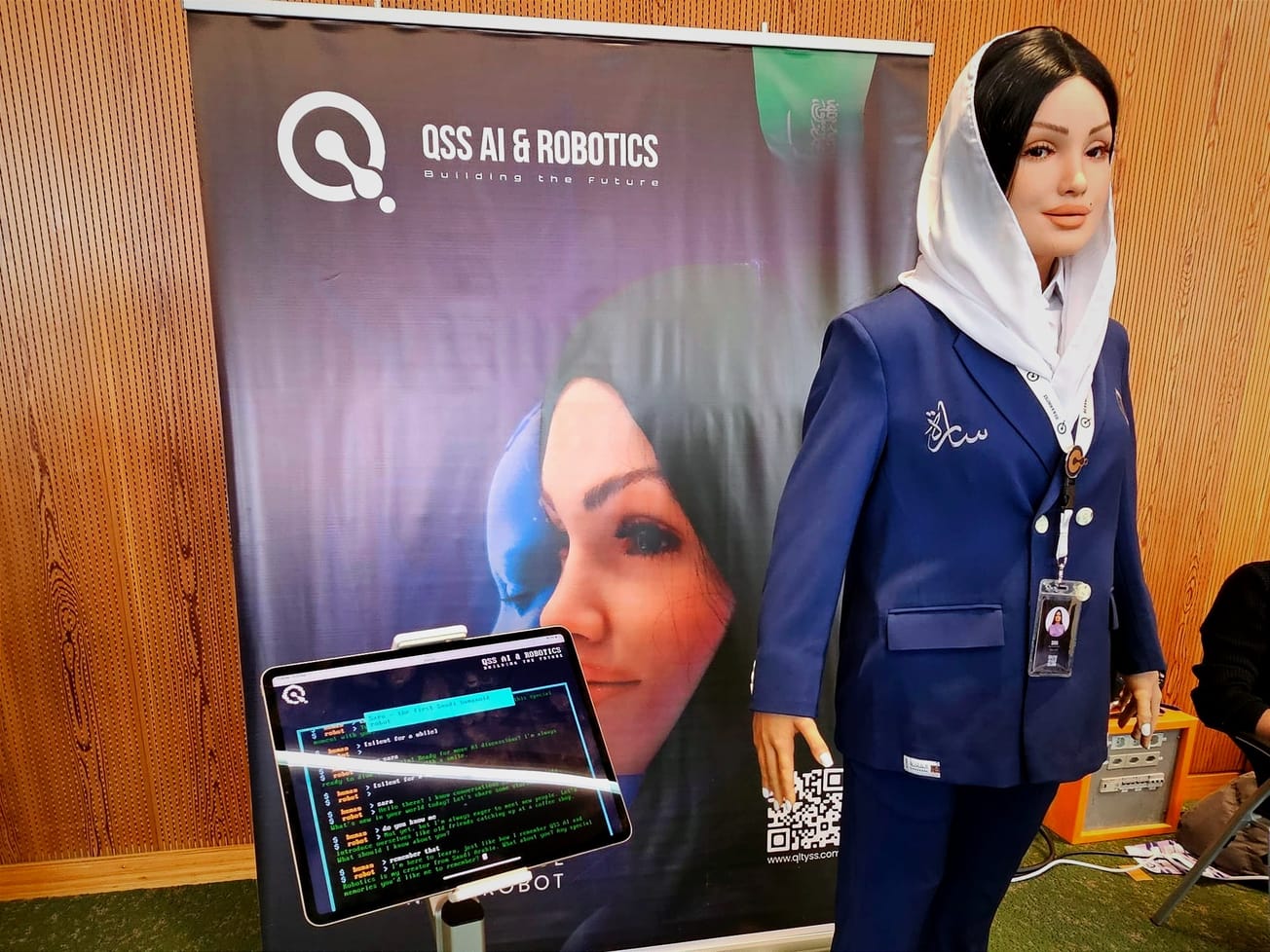Diplomats at the U.N. Security Council committed to more systematically boost the role of science in decision-making about international peace and security.
At the end of a briefing on Monday, Swiss Foreign Minister Ignazio Cassis read aloud a council presidential statement agreeing "to take into account scientific advances more systematically, where appropriate, and in line with its mandate, in as far as their impact on international peace and security is concerned."









